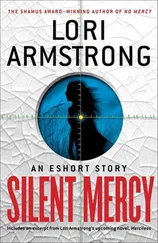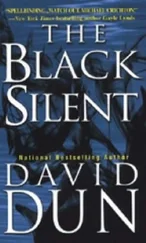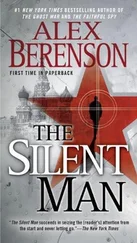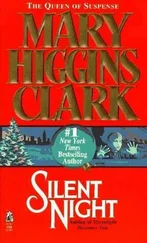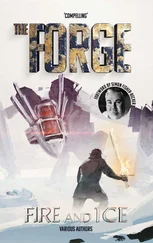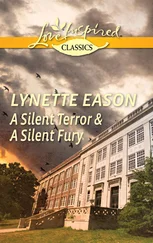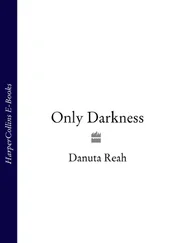But it was a façade, he’d realized, as the interview had moved on. What he had mistaken for hostility was, in fact, tension, but it seemed more a tension associated with her surroundings than with him. It was almost as if she was having trouble concentrating on the interview at all.
He looked at his notes. Her confusion about the park – he could accept that. She’d been in shock, focused on finding the dead woman in the water. Her sheer embarrassment at having to admit that she’d been near Shepherd Wheel at the crucial time, and hadn’t mentioned it, had been convincing.
But had she tried to slide that sighting past him? If so, why mention it at all? It was odd. He’d known there was something else, and he’d been right. Ashley Reid from the Alpha programme. Why were alarm bells ringing in his mind? He knew that name. OK, let’s see what Ashley who wasn’t there might have been doing. Let’s see what he’d been doing the last time he’d been arrested and charged. He typed the commands into the machine, and waited.
The photograph on the screen showed a young man with heavy dark hair and dark eyes. He looked out at McCarthy with a faint smile, his eyes wary. He was nineteen – a bit older than most of those sent on the programme. McCarthy ran the record back. Reid had served a short youth custody sentence three years ago – got into a fight and glassed his opponent. Most of his other offences were typical of a disruptive juvenile: shoplifting, twoc, minor vandalism. But Reid had moved on to breaking and entering. He had more than one conviction. He should have been sent down. Why the Alpha Project? McCarthy read on. Reid was classified as having ‘learning difficulties’. McCarthy was surprised. The face that looked at him from the photograph didn’t give that impression. He’d been identified as particularly suitable for the experimental programme that was running at the Alpha Project. Not so much bad as easily led, his probation officer had said, the fall guy for more intelligent companions. That had been the argument that had kept him out of prison.
McCarthy raised a sceptical eyebrow. Then he noticed that Reid had an outstanding charge against him, one that was due to go to court. University campus security had found him late one night in the shadows behind the chemistry building, the route across the car park that made a useful, but lonely, shortcut. He was facing a charge of going equipped for burglary. He’d been carrying a torch, a lock-knife and some heavy-duty adhesive tape. In McCarthy’s eyes, in that location, that wasn’t going equipped for burglary, it was going equipped for rape.
The world of chemicals is ordered, predictable and, for those who understand it, safe. It was evening, and Simon let his eyes follow the straight lines of the tiles running along the shiny floor, across, making right angles and patterns of squares. Small squares, and larger squares each containing four small squares, and larger squares still each containing four of the smaller squares each containing four of the small squares and on and on forever. Order.
He mixed the three solutions, acetimide in water, calcium hypochlorate in water, sodium hydroxide careful now in water. Watch the heat! He put the solutions in the freezer.
There were heavy benches in rows. Strips of light on the ceiling, bright, bright, bouncing off the surface of the glass, the bottles, the tubes, the shapes, the curves. The light mixing and shattering into chaos.
The important thing was to keep the temperature low. Experiment had shown him that a stainless steel bowl suspended in a mixture of ice and salt worked fine, as long as he was careful and patient. Molecules sit in their patterns, break down on the right stimulus, recombine in patterns that it is easy to predict. Absorbing and beautiful.
The light reflecting, refracting, lines against the glassware, shattering again and again and again.
He put the first solution in the bowl, stirring to get the temperature down. Then, slowly, carefully, he added the second, working under the fume hood. Care! Once, once only the order, the ratios, the time, something was wrong, and the disinfectant smell of chlorine began to seep into the room.
Now he could sit and wait. Two hours. Tonight he’d brought his drawing pad with him. He opened it to a new page. The sheer whiteness, the blankness of it pleased him, and he sat looking at it for a long time. Footsteps on the shiny floor. A face, smiling. Just a face. Faces need to be drawn, carefully delineated in sharp pencil lines to give them meaning. ‘Hello, Simon. I haven’t seen you at …’ Malcolm. Tutor. Tune it out. Not important. The beauty of the white began to evade him, and he picked up his pencil. ‘… so close to your finals.’ Nod. That’s not enough. Say, ‘Yes.’ It was important to get it right in the centre. The pencil began to create a picture, fine lines, fine detail, unclear at first to anyone who can’t see the patterns that have always been so clear to Simon.
‘… catching up. This lab’s empty tonight, but Barry’s next door if you need anything. They’ll be locking up at nine.’ Their eyes meeting. Simon, looking away, nodding. Say, ‘OK. All right.’ Footsteps. Door. Gone. Simon looked at the clock, and returned to his drawing.
Two hours. He added the contents of the third flask now, cool not cold. The solution turned a clear white, like milk, like paper.
Hours to wait now. Leave, down the shiny corridors and the lights in the ceiling, and the chaos as the people walk here, there, and all the patterns disturbed. Say, ‘Goodnight.’ The security man, old, ‘Night.’ Looking down, not noticing, used to Simon’s comings and goings. Out of sight and back to the room with the shiny floor. Wait.
Lights out. The security man, back soon. Wait, watch, sleep. Sleep. Dream …
The torchlight wavering on the path ahead. Fading, as though the batteries were giving up. The rain spattering against them, and a puddle gleaming in the thin light. And on the path ahead … Staggering under the weight as she slumped against him. The stuff had been good, strong. Quiet, be very quiet. The path by the dam, now. The night, black beyond the circle of faint light on the ground. The torchlight catching the rain, shining and glittering. Shining and glittering like the mud in the dam, the thick, black mud and the sucking sounds drawing your feet in and releasing them. And the place where the mud was disturbed, the place where you could dig.
Oh, no. Please not that. And the gleam colder than the gleam of firelight, making the metal burn with ice.
Not that! And the soft, muffling sound of the mud in the darkness.
Simon’s eyes snapped open. That dream again, and now there was another one, rushing along a shadowed path, looking for something that wasn’t there, feeling it hard on his heels, the chaos, the chaos, the chaos.
He looked at the clock, its black hands on its white face calming him, steadying his breathing. Just a dream, Si. Don’t worry about it. Several hours had passed. It was midnight. The night watchman never came up here so late. Simon began heating the water bath.
Dennis Allan’s home – once Emma’s home – was a maisonette on the estate overlooking Gleadless Valley. Tina Barraclough got lost on her first attempt to find the address, working her way through the confusing maze of two- and three-storey blocks that studded the valley side. From the distance, the estate gave a sense of openness, of green parkland dotted here and there with buildings whose fronts were multicoloured with fluttering curtains, washing hanging on the balconies, painted doors. From closer up, the decay was more apparent. There was rubbish on the grass, bare, muddy patches. The paintwork on the buildings was peeling. Nearby, the blocks were boarded up. Further down the hill, they were encased in scaffolding, surrounded by the mud and rubble of a building site, tarpaulins and polythene sheeting flapping in the summer breeze.
Читать дальше

